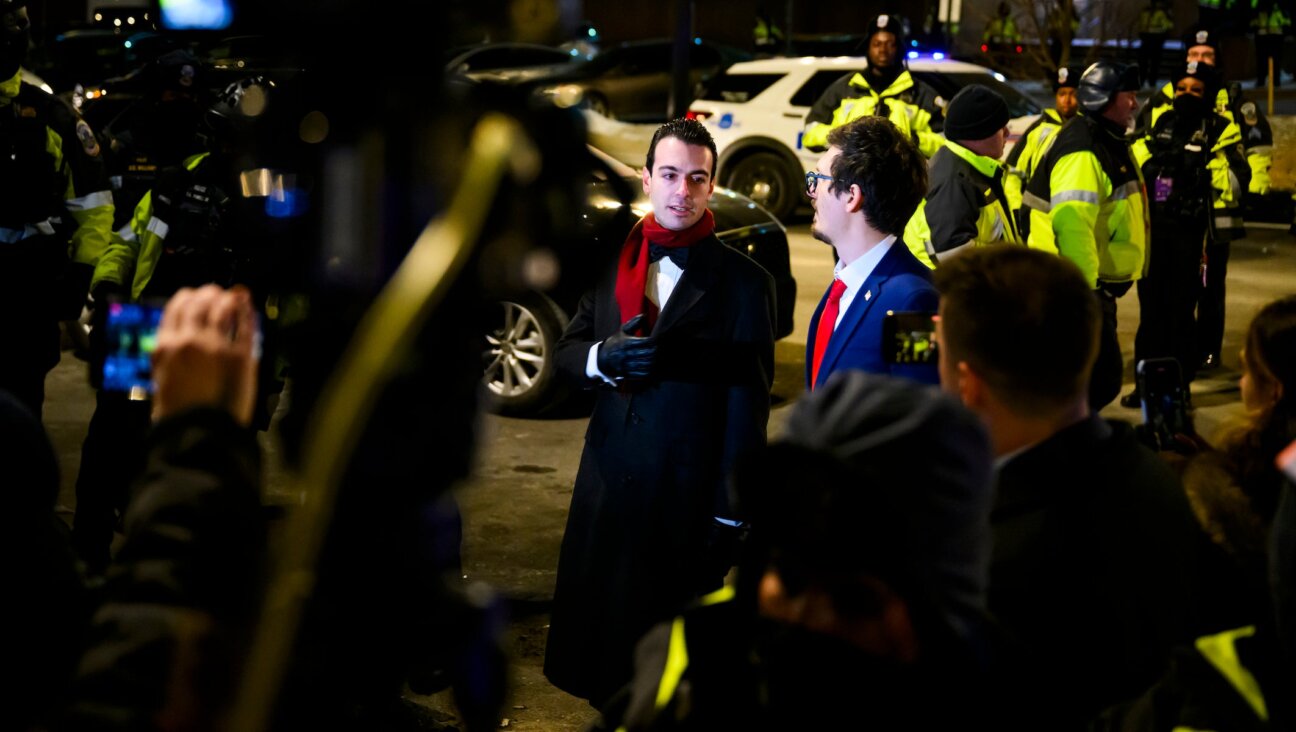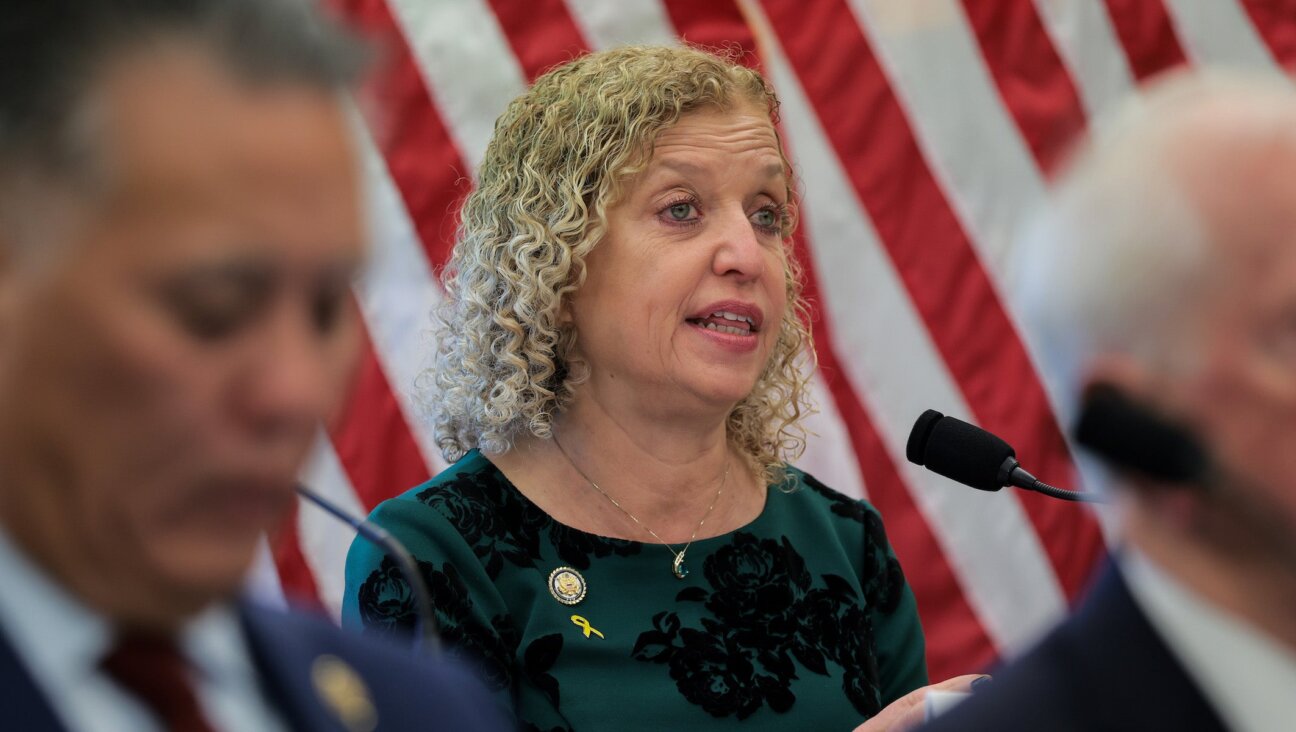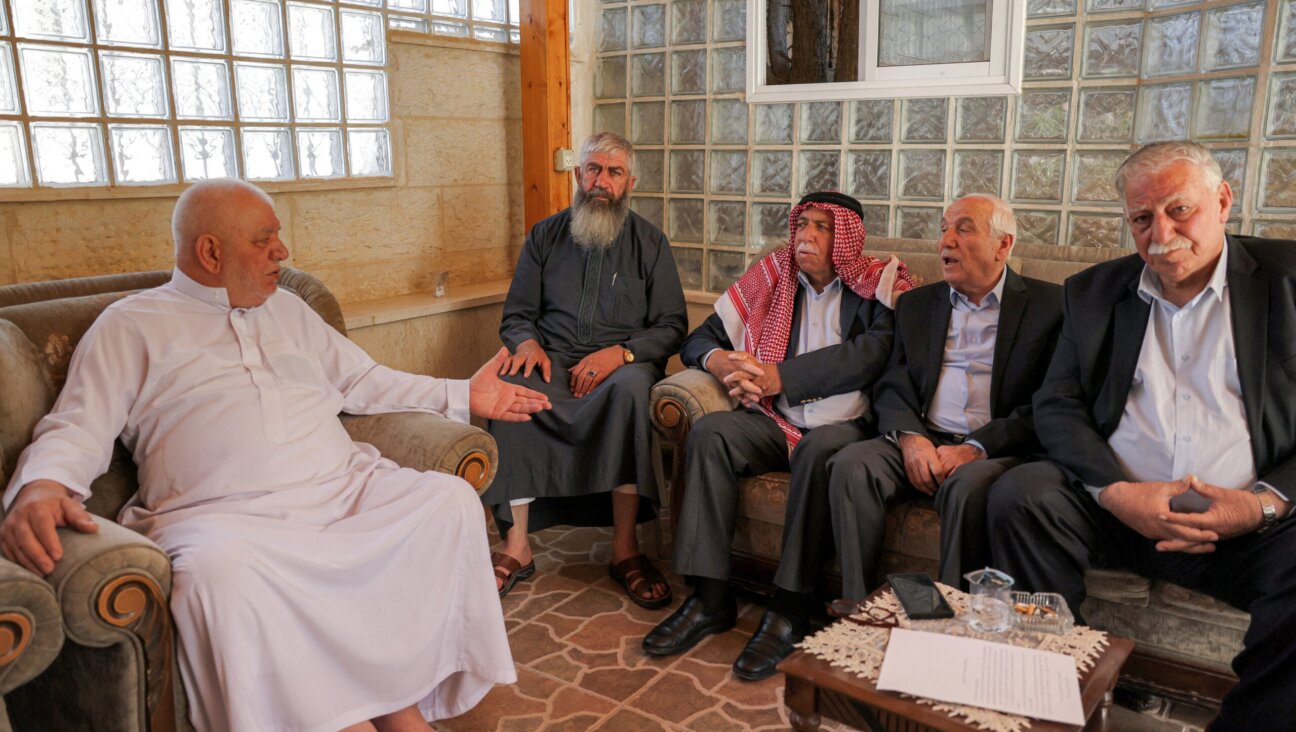Where West and Jerusalem Meet, Uneasy Calm Reigns — for Now

Image by Getty Images
In the narrow corners of Jerusalem, where Jewish neighborhoods abut Palestinian ones, apprehension ran deep on Wednesday as Israel authorized the police to block access from Arab areas after a two-week wave of violence.
The hilly backstreets that twist around the eastern, predominantly Arab half of the city were quieter than normal, as were the streets on the western, Jewish side, where several knife and car attacks have taken place since Oct. 1.
Israel captured and annexed East Jerusalem in a 1967 war, declaring it part of its “united capital.” But politics, religion and an invisible seamline continue to divide the two sectors of the holy city.
“You can’t shut this street down. I have Jewish and Arab customers,” said Ammar, who helps run a falafel and kubbeh restaurant on Abu Rabi’a street in Jabel Mukabar, 20 feet from Meir Nakar street in the Jewish district of Talpiyot Mizrah.
Across the road from the restaurant, on a raised plateau protected by a fence, stood two Israeli policemen, one an Arab Christian, the other a Druze, watching closely from the shade of an umbrella. Two stun grenades hung from the awning.
“It’s quiet for now,” said one of them, wearing a stab vest and carrying a riot helmet by his side. “But you never know.”
Down the street, a handful of Israelis waiting at a bus stop said they were nervous after the surge of violence, in which seven Israelis and 30 Palestinians, including children and assailants, have been killed – the worst unrest in years.
A little further away, a group of ultra-Orthodox Jewish men dressed in black hats and coats in the warm sunshine peered through a gap in the fence down towards the Arab neighborhood.
DIVIDED CITY
At a meeting that ended in the early hours of Wednesday, Israel’s security cabinet agreed measures to try to combat the violence, including allowing the police to close off Arab districts if deemed necessary and revoking residency rights of Palestinians who carry out attacks.
Israeli security specialists called the threatened closures – which would be the most severe restrictions imposed in Jerusalem in a decade – unworkable, saying it was impossible to fully cut off Arab areas and risked further fueling tension.
Palestinians condemned the security steps as collective punishment. They want East Jerusalem as the capital of an independent state that includes Gaza and the occupied West Bank.
In a city of more than 800,000 people – around 65 percent Jewish and 35 percent Palestinian – sealing off the Arab areas is not only a logistical challenge but economically problematic. A large number of Palestinians work in the west, as bus drivers, in bakeries, hotels, shops and petrol stations.
In all, the virtual seamline runs for about 12 km (7 miles), from the district of Beit Hanina in the north, around the edges of the walled Old City, and down to Jabel Mukabar and Sur Baher in the south.
“I don’t think the Israeli government would be stupid enough to do it,” said Mustafa, 47, a father of five who lives in Abu Tor, a mixed neighborhood on the dividing line. “It’s like shooting yourself in the leg – it would kill the economy.”
He shook his head, hoping the wave of violence would pass and the closures wouldn’t end up being fully imposed.
“They tried it in the first intifada, but it only made things worse,” he said, referring to a Palestinian uprising that took place from 1987-1993. “Not again.”























